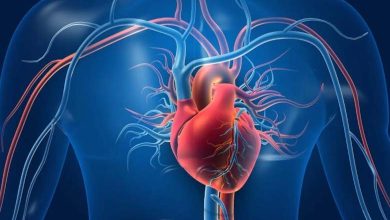5 Principles to Reduce the Risk of Colon Cancer

Colon and rectal cancer is classified as the third most prevalent form of cancer worldwide, presenting a significant challenge in early detection due to its subtle symptoms.
According to a report published by huffpost, Dr. Ursina Teitelbaum, an oncologist and head of the gastrointestinal cancer department at the Abramson Cancer Center, emphasizes five critical practices essential for maintaining optimal intestinal health.
- Acknowledging Family History
Ignoring the genetic predisposition to colon and rectal cancer is a grave mistake, as family history is a strong risk factor. Up to a third of colon and rectal cancer diagnoses are linked to previous family occurrences. This risk stems from a combination of genetic and environmental factors, making early screenings necessary upon discovering a family history, enabling proactive management.
- Prioritizing Timely Screenings
The significant increase in colon and rectal cancer diagnoses among younger populations underscores the importance of timely screenings. The US Preventive Services Task Force reviewed guidelines and recommended screenings starting at age 45. For individuals with inflammatory bowel disease or a clean family history, regular colonoscopies are crucial preventive measures against potential malignant tumors. Dr. Teitelbaum emphasizes that early detection through routine screenings significantly enhances treatment outcomes.
- Paying Attention to Unusual Symptoms
Ignoring troubling symptoms poses significant risks. Dr. Teitelbaum warns against disregarding signs such as changes in bowel habits, rectal bleeding, or persistent abdominal discomfort. Regardless of age, vigilance regarding unusual symptoms is crucial. Seeking medical consultation upon detecting troublesome conditions can prevent delayed diagnosis and mitigate adverse outcomes.
- Adopting a Healthy Lifestyle
Recognizing the correlation between lifestyle choices and the risk of colon and rectal cancer is imperative. Modifiable factors such as smoking, excessive alcohol consumption, and dietary habits significantly contribute to susceptibility. Consumption of red meat and processed foods amplifies risks, while diets rich in vegetables, fruits, and whole grains alleviate them.
- Encouraging Gut Health Discussions
Breaking the taboos surrounding discussions about bowel movements is crucial. Dr. Teitelbaum advocates for destigmatizing these conversations, focusing on the importance of openness in identifying potential health concerns. Encouraging individuals to express their experiences facilitates early detection and intervention. By promoting a culture of dialogue, barriers hindering medical assistance for gastrointestinal issues can be removed, ultimately enhancing overall well-being.
In conclusion, adhering to these five principles outlined by Dr. Teitelbaum serves as a cornerstone for maintaining intestinal health, significantly reducing the risk of colon and rectal cancer, and promoting general welfare.












